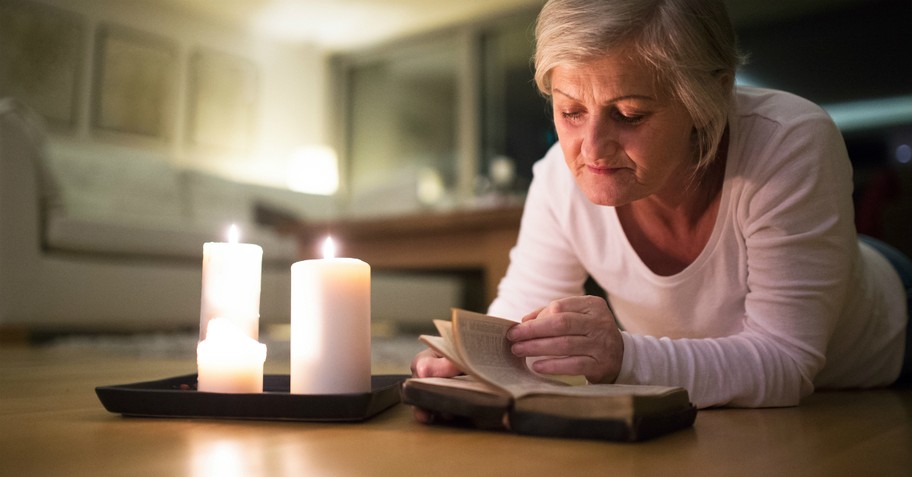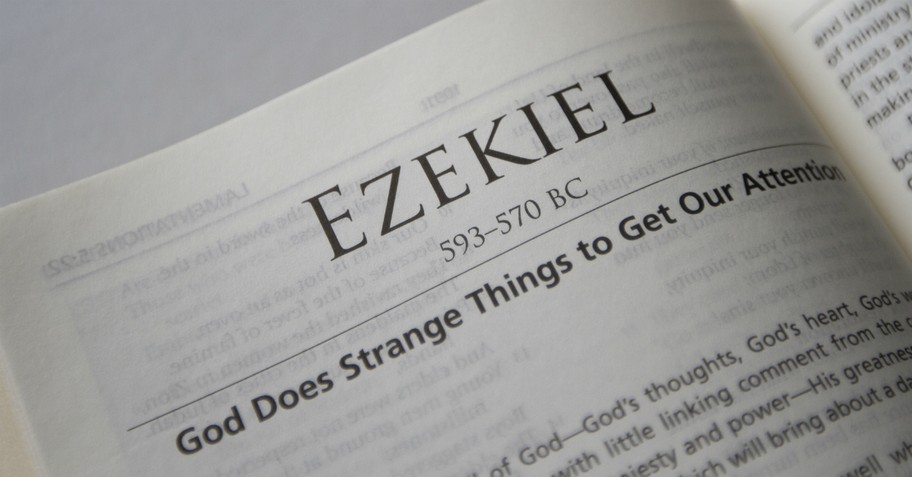What Does Isaiah 66:13 Mean by ‘As a Mother Comforts Her Child, So Will I Comfort You?’

As a mother comforts her child, so will I comfort you... – Isaiah 66:13
Contrary to some beliefs, there is no “Mother” counterpart to Father God, but Isaiah was prompted by God to comfort Israel with a maternal promise. God is our Father, but who is the mother to whom verse 13 refers? How will she comfort us, and who is she?
Where Is 'As a Mother Comforts Her Child, So Will I Comfort You' in the Bible?
“Isaiah contains some of the most incredible prophecies of any book. It contains foreknowledge, in incredible details about the Messiah, and the future reign of Jesus Christ.” Isaiah calls out the sin of God’s people; “God calls and commissions His prophet to declare to Judah and Israel condemnation, conviction, and ultimately great hope.” Isaiah describes how God will punish the people, but He also uses Isaiah to spread the message that a Savior is coming. Chapter 66 is the final chapter, and the words of Isaiah 66:13 point to that promise.
Photo Credit: ©GettyImages/fizkes

Who Wrote Isaiah 66:13 and What Was the Context of "As a mother...So Will I"?
Isaiah wrote these words, which God gave him directly. He begins Chapter 66 “Thus says the Lord.” Isaiah was a prophet and his book is considered one of the major prophetic books because it is so lengthy and full of Messianic prophecy. Little is known about Isaiah’s personal life, but “some scholars speculate that Isaiah was a member of the royal family since he had easy access to the kings.” He was a “Jewish prophet who lived during the eighth century BC.”
Isaiah’s words were written more than 700 years before the birth of Christ. Israel had fallen away from the Lord and Isaiah was called by God to tell the people of God’s wrath and His promise of hope. The final section of the Book of Isaiah, chapters 55-66, tells of “the new Heavens and Earth” which is that great reward for all those who trust and obey God.” The Lord builds a metaphor in which “before she was in labor” Jerusalem “gave birth.” (v.7) She is a nursing mother. (v.11)
Other Translations of ‘As a Mother Comforts Her Child, So Will I Comfort You’
As one whom his mother comforteth, so will I comfort you. (King James Version)
I will comfort you there in Jerusalem as a mother comforts her child. (New Living Translation)
As a mother comforts her son, so I will comfort you. (Holman Christian Standard Bible)
As a mother comforts her child, so I'll comfort you. (The Message)
There is surprising continuity from one version to another. The only major difference is that, while in most versions “and you will be comforted over Jerusalem” is a separate part of v.13.
The New Living Translation changes the grammatical strategy to blend the two parts together. The word for “comfort” in Hebrew is ’ănaḥemḵem meaning “I will comfort.” Immow is literally “his mother” in Hebrew.
Photo Credit: ©GettyImages/Halfpoint

What Does it Mean That God Will Comfort as a Mother Comforts?
David Guzik writes that this is a prophecy about “a day when the victory will come easily to Jerusalem, when she will be as the promise of Romans 8:37, more than conquerors through Him who loved us.” This will be Jerusalem’s comfort. “No one can comfort like a mother, and God will bring that kind of comfort to His people.” Guzik quotes Spurgeon: “a father can comfort” but “he is not much at home at the work. When God speaks about his pity, he compares himself to their father,” but “when he speaks about comfort, he selects the mother.”
According to Peter Pett, “the new born people of God” or Christians as they would come to be known “will find the source of full blessing in God’s provision in the heavenly places. All who come to them to drink will find solace. And through them God will supply His comfort, indeed He will comfort them Himself.”
The comfort Isaiah wrote about, though compared to that which a mother provides, is still God’s comfort. In the eighth century, His people look forward to an intimate sort of comfort which will come through Christ, the promised Messiah.
Scriptures Related to Isaiah 66:13
Where else is the mothering imagery seen in the Word of God?
The Israelites grumbled to Moses in the desert and he asked God “did I conceive all these people? Did I give them birth? Why do you tell me to carry them in my arms, as a nurse carries an infant?” (Numbers 11:12)
Moses was not a mother, but The Lord spoke of Himself as a nurturer.
He told Ezekiel He would replace the “shepherds of Israel” (Ezekiel 34:2) who “eat the fat [...] but do not feed the sheep.” (Ezekiel 34:3). The Lord would tend His people “in a good pasture, and the mountain heights of Israel will be their grazing land. There [...] they will feed in a rich pasture on the mountains of Israel. I myself will tend my sheep and have them lie down.” (Ezekiel 34:14-15)
This verse echoes that gentle, nursing-mother image found in Isaiah’s description of Mother Jerusalem.
Paul wrote to the church at Thessalonica that “just as a nursing mother cares for her children, so we cared for you. Because we loved you so much, we were delighted to share with you not only the gospel of God but our lives as well.” (1 Thessalonians 2:7-8)
The Apostles were instruments of God’s nurturing provision towards the new Christians, providing the solace Guzik wrote about.
Photo Credit: ©Sparrowstock

How Isaiah 66:13 Applies to Mothers Today
As Spurgeon says, nothing matches the comfort of a mother.
If you have forgotten your value as a mom, this verse validates you.
If you have forgotten to value your own mother or the person who fulfilled that role, such as an aunt or grandmother, call her today and tell her how much she means to you.
If your mother was not nurturing, remember that God uses the maternal symbol to represent His own abiltiy to comfort His children. The Father still comforts better than the best earthly mother; He loves better than any maternal figure on the planet. He always wanted you. God created you after all, and knew you before He “formed you in the womb.” (Jeremiah 1:5)
That goes for moms, too: the Psalmist writes “in your book were written, every one of them, the days that were formed for me, when as yet there was none of them.” He sees how hard you try to be a good mom, year after year, but He is “the God of all comfort, who comforts us in all our affliction, so that we may be able to comfort those who are in any affliction, with the comfort with which we ourselves are comforted by God.” (2 Corinthians 1:3-4)
Every good thing—including the patience and endurance to persevere in faith through the trials of parenthood—comes from Him. Through it all, you are nurtured by the ultimate Comforter because mothers are also God’s daughters.
Photo Credit: ©Unsplash/Xavier Mouton

A Prayer for Mother’s Day Inspired by Isaiah 66:13
God, we confess that we do not all value our mothers as we ought to. We take them for granted and forget how they have often gone without rest, sometimes without food, and frequently without simple pleasures, for our sakes.
Forgive us, God, and teach us to honor our mothers.
And Father, thank You for showing us what comforting others looks like, whether as biological and adoptive mothers or as mother figures. In Your Son’s name, amen.
It’s surprising to see God represent Himself in a soft, tender, and feminine way. We usually use a male pronoun in reference to Him, and His identity is frequently one of awe-inspiring, even frightening power. Isaiah 66:13 reminds us that every good aspect of every person—including women—comes from Him, the Creator.
Whatever qualities we strive to develop and improve, He has already perfected...to give us an example, and to supply our needs as His children.
Photo Credit: ©Sparrowstock
Originally published April 30, 2020.









